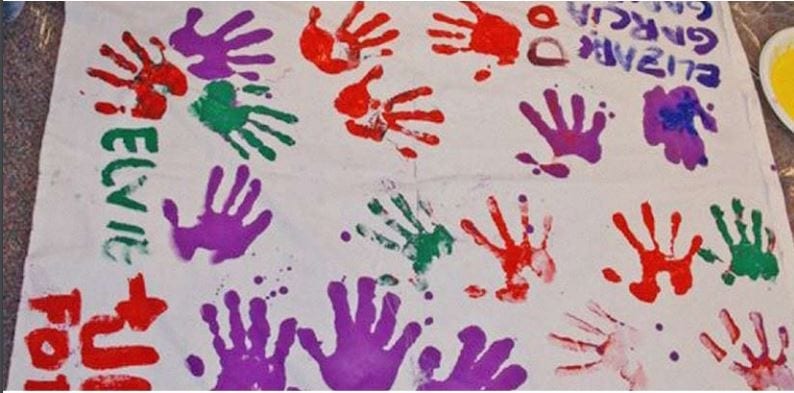
Unprotected Work, Invisible Exploitation: Trafficking for the Purpose of Domestic Servitude
Introduction
Click here to read full report
The 2008 OSCE Ministerial Council Decision No.
5/08 encourages participating States to ensure that
all forms of trafficking in human beings as defined in
the OSCE Action Plan are criminalized in their national
legislation. Political will and action at the national level
are the prerequisites to preventing and combating the
exploitation of individuals in slavery-like conditions and
to meeting these commitments, as underscored in the
UN Trafficking Protocol1
and in the OSCE Action Plan2
.
First and foremost, governments bear responsibility
for developing comprehensive national anti-trafficking
responses, which acknowledge that a wide variety of
persons can be bought and sold, abused, deceived
threatened or coerced into a broad range of exploitative
situations. These include sexual exploitation and labour
exploitation in various sectors such as agriculture,
construction, textiles, restaurants, food processing,
cleaning, hospitality and entertainment.
In order to raise the visibility of trafficking for labour
exploitation based on the OSCE Action Plan and other
anti-trafficking commitments, the Office of the Special
Representative hosted a high-level conference in
November 2005 under the auspices of the Alliance
against Trafficking in Persons. The conference had
three major objectives: (i) to mobilize greater political
will to eradicate trafficking for labour exploitation; (ii) to
provide a forum for the exchange of concrete experiences
as a tool to advance the implementation of anti-trafficking
commitments; and (iii) to increase the understanding of
the need to involve a range of new additional stakeholders
in the design and implementation of responses to this
form of trafficking in human beings.
In recognition of the importance of the issue, and
building upon the awareness developed during the first
event, a second high-level conference was organized in
November 2006. This was entitled “Human Trafficking
for Labour Exploitation/Forced and Bonded Labour:
Prosecution of Offenders, Justice for Victims”. The event
provided an opportunity to focus in greater depth on two
of the major challenges facing participating States: how
to bring perpetrators to justice and how to ensure legal
redress for the victims.
Overall, these two events made a concrete contribution
to two of the core tasks of the Special Representative:
(i) to assist participating States in the development
and implementation of national anti-trafficking policy
in compliance with OSCE commitments and other
international obligations; and (ii) to assume “responsibility
within the OSCE for hosting and facilitating meetings for
the exchange of information and experiences between
national co-ordinators, representatives designated by
the participating States and experts on combating THB”.
Moreover, results from these two conferences increased
the interest of the participating States and improved
dialogue between them about the need to strengthen
their efforts to combat trafficking for labour exploitation,
thus contributing to additional OSCE commitments by
governments through the 2006 Brussels and 2007 Madrid
Ministerial Decisions on trafficking for labour exploitation.3
The Office of the Special Representative believes
that the study of trafficking for labour exploitation by
economic sector provides an important contribution to
the participating States’ and other relevant stakeholders’
deeper understanding of this largely hidden problem,
as well as to informing the design of shared policies to
tackle it.
The various economic sectors where trafficking can occur have a range of structural features that may cause or
exacerbate worker vulnerability. They are regulated under
different legal systems and call for different approaches
to identifying and assisting victims. A thorough sectoral
analysis should therefore lead to more effective
interventions.
An Occasional Paper, focusing on the agricultural sector,
was published in 2009. It presented A Summary of
Challenges on Addressing Human Trafficking for Labour
Exploitation in the Agricultural Sector in the OSCE
Region, as well as the conclusions of the Technical
Seminar on Trafficking for Labour Exploitation focusing
on the Agricultural Sector. Building on this approach and
experience, this fourth Occasional Paper focuses on
labour trafficking in another specific economic sector,
namely domestic work.
This Occasional Paper is the result of the Alliance
High-level Conference on “Unprotected Work, Invisible
Exploitation: Trafficking for the Purpose of Domestic
Servitude” hosted by the Special Representative in
Vienna on 17 and 18 June 2010 and the Background
Paper which informed the dialogue and exchange at the
Conference.
The Paper is meant to provide a policy tool for decision
makers and practitioners dealing with trafficking in human
beings on the ground. It is based on desk research, field
work and case study analyses in order to shed light on
one of the most invisible forms of modern-day slavery.
The Paper also benefits from the comments, inputs and
expertise of specialized NGOs. Furthermore, it is enriched
by the valuable contributions and direct experience
of policymakers and public officials (including law
enforcement, prosecutors, judges, diplomats), as well as
trade unions, international organizations and academics
who participated in the Alliance Conference.
The Alliance Conference, which aimed at advancing the
implementation of OSCE anti-trafficking commitments
and mobilizing greater political will, highlighted the
specific features of this form of trafficking in human
beings, as well as the experiences and challenges
that participating States, civil society and international
organizations encounter in prevention of trafficking for
domestic servitude. It provided an excellent forum to
gather expertise, exchange good practices and develop
recommendations on what more can be done to eradicate
trafficking in human beings for domestic servitude.
